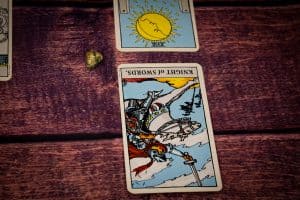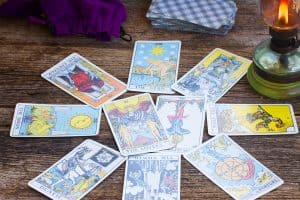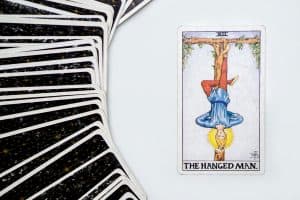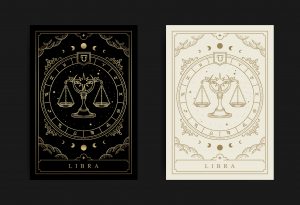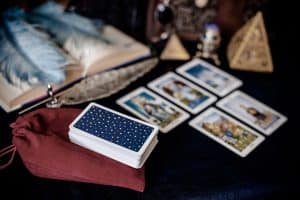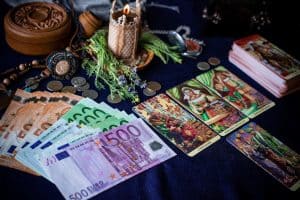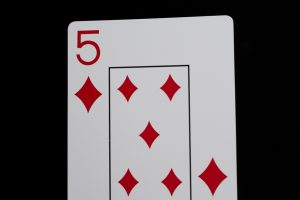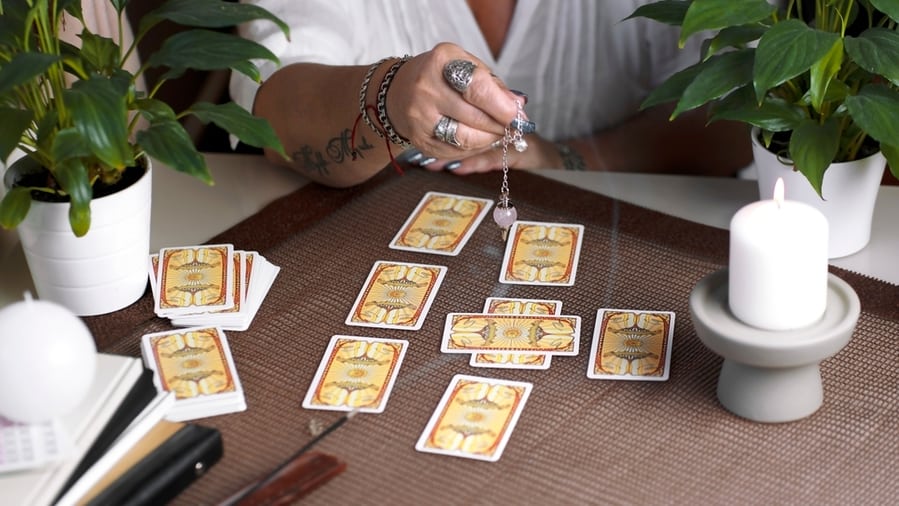
Tarot cards trace their origin back to the 15th century and contain seventy-eight cards. Almost like all other cards, tarots are a form of playing cards. However, the fundamental difference lies in how you use them to get to know yourself.
These cards can help you with decisions that may seem overwhelming or provide insight into how to get the best result. It may make tarot cards seem religious, but they lie more on the occult or spiritual side.
Tarot cards link to several religions, and the type of cards in both Arcanas may provide a religious sense. That’s why; it is no easy feat to describe tarot as a religion or relate it to one. The misconception came to be because of the history that follows tarot.
Hence, whether these cards are religious remains a question, which brings us to the topic: what religion are tarot cards?
Long story short, Tarot is not a religion; it is a spiritual activity. However, the modern era attributes a religious side to tarot cards, as belief is the basis for any religion, and the same holds on the tarot side.
Here we will give an in-depth view of why tarot isn’t a religion, why they are considered as such, and how historical links led to the creation of a religious sense. So, let’s dive in!
Tarot and Religion
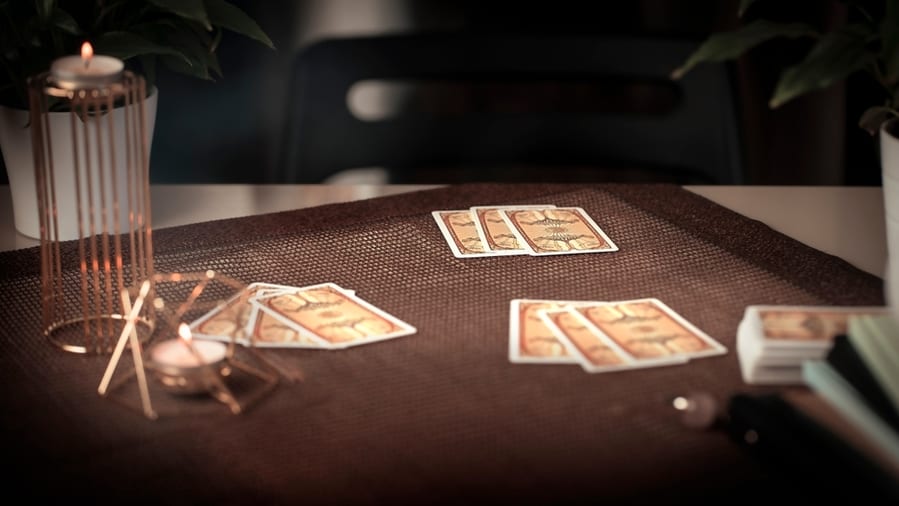
The notion of tarot being a religion came to be because of how it guides people. However, that’s just a part of it; the misconception of tarot as a way to predict the future also added to it.
But the point of confusion is how everyone relates to these cards based on their religious side, upbringing, and their feelings. That’s why; it creates an ambiguity in whether tarot is a religion or whether it is right to call tarot readings a religious activity.
To get to the bottom of this, first, we need to understand what a religion is, how tarots differ from religion, and the similarities that create this ambiguous notion.
What Is Religion?
In the most basic definition, religion is faith or belief in the supernatural or a God. This belief is not a standalone activity; it follows designated practices that a group follows; hence, a sociocultural activity.
That’s not all; many religions forbid several practices, e.g., some religions want you to practice celibacy, some prohibit alcohol, other pig meat, and more.
Also, the primary factor is the general practices shared by a group of people practicing the said religion, e.g., offering prayers, going on pilgrimages, baptisms, rites for burial, chantings, etc.
All these traits define religion, but with the advent of the new era, people are becoming more and more open-minded. Most religions restrict you from several aspects that bring harm to you mentally and physically, but these ideas are getting antiquated.
The primary factor which links religion to Tarot cards is divination. However, divination isn’t a tool to play around with, and several religions forbid it. Another factor to consider is that, unlike the predetermined constraints of religion, tarot can be suited to your individualistic self, so people attribute it to an open one.
How Does Tarot Differ From a Religion?
Numerous points differentiate tarot from religion, and while it is a spiritual activity calling it a religion won’t be right. Tarot as a religion is one side of the coin; the other side shows why it isn’t religious activity.
The first and probably the most convincing fact is that the tarot doesn’t want you to believe in a God or a supernatural being. Also, it doesn’t require following pre-set rules and practices, and no one to set an example, e.g., saints, prophets, etc.
The deciding factor is how religions cater to groups, while tarot is individual-centered activity. It requires you to understand yourself from the clues on cards and predict your situation instead of hoping for divine intervention.
While some consider tarot reading a ritual similar to that performed in other religions, it is more relevant to psychotherapy. Also, instead of believing and hoping, you have more control and choice in tarot reading.
All these points lead to the conclusion that tarot isn’t a religion or a religious activity.
Historical Links and Religious Basis
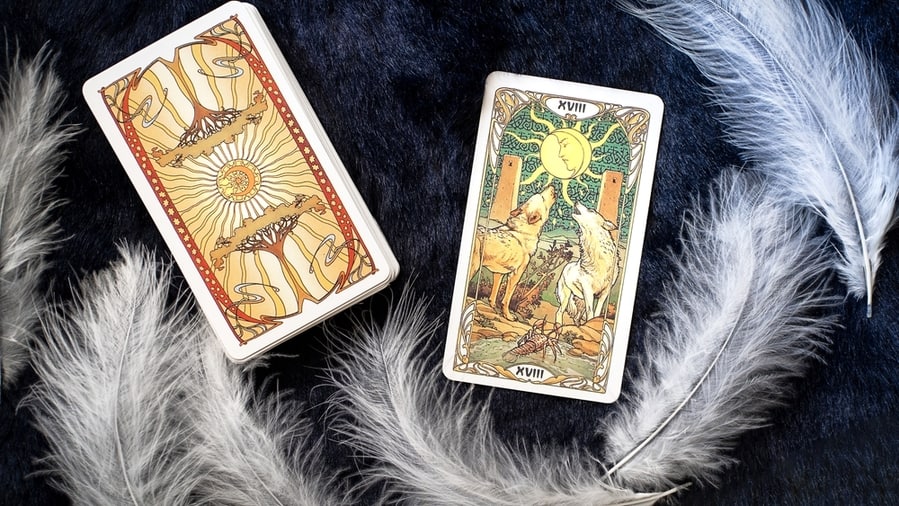
The origin of tarot cards traces back to Islamic soldiers that brought this playing deck to Europe during the 15th century. During that time, the name tarot was still not there, and it was known as Mamluk. Not only tarot but most card games took this as a base for their inspiration.
From there on, this card game became popular in Europe and shaped what is known as tarot cards today. In the late 18th century, a French count pointed toward the religious significance of tarot cards and their relation with the old Egyptian religion.
The belief was a misconception, but it set sail in full bloom. It led to other occultists jumping on the bandwagon and putting out their religious philosophies based on a tarot deck. Another one from the early 20th century includes Thelema by Aleister Crowley.
All these links point towards why Tarot decks get the label of being religious attached to them. It is because of the piling up of misunderstandings and wrong interpretations.
Religious Side
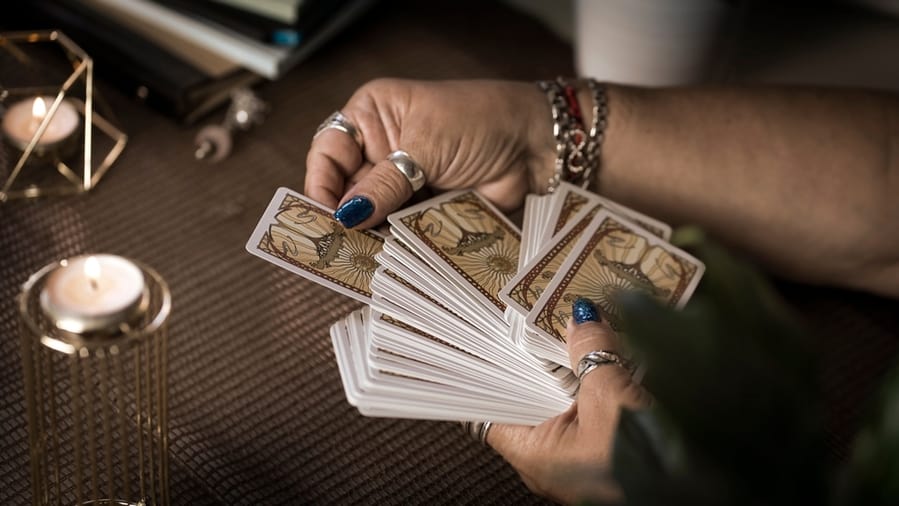
A total of four components bring about the religious side of these cards. These are;
Spiritual Connection
The primary purpose of tarot cards is to establish a connection between the person and spirit. It points towards the fact that there is something bigger than the person, and the universe is interconnected.
Also, it doesn’t require the person to be someone with “special” skills to understand the meaning of these cards and connect with the spirit.
Self-Help
Religions want you to become the best version of yourself and give you an example to follow, so you can help yourself and the world. Tarot cards provide the same in an individualistic sense.
These cards help you better connect with your spirit self, predict how to proceed, and improve yourself. In a way, it makes you the best version of yourself.
Aiding People and Growth
Tarot isn’t only a tool for personal aid but can also be used to aid others. Many tarot readers help people in their readings and better understand their natural selves. It relates to the purpose of why religion came to be.
Not only that, tarot cards give different meanings based on the deck and card. Therefore, it can help you reach an optimal decision and aid in success. It also provides a purpose to one’s existence, helping you grow as you move forward.
Link Between Body and Spirit
Almost everyone who gets in touch with tarot wants to know themselves better. The better the link between the conscious and subconscious, the more you understand your true self attributing meaning to life.
Simply put, tarot helps people better understand the world from their standpoint and their role in the bigger picture.
Tarot Cards and Religious Symbolism
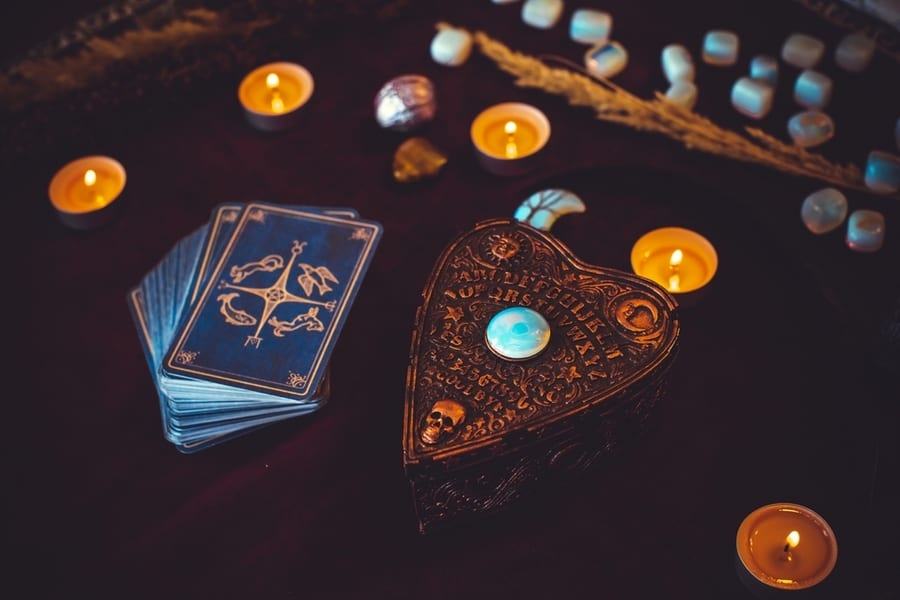
The idea of these cards being religious isn’t strange since the cards carry several symbols that depict this nature. These include Judgement, where an angel blows the trumpet to raise the dead from their grave to be ready for the day of Judgement.
Similarly, the Hierophant traces its links back to the priestly traditions in Hebrew. Also, the Temperance, where an angel seems to be mixing up a liquid in two golden cups, and the Devil’s and the Lover’s cards, where a demon holding two humans in chains and two humans under an angel can be seen.
Also, the occult meanings of other cards, e.g., the Chariot, Wheel of Fortune, the Magician, etc., adds more to the mystery. That’s why; it isn’t weird to find people mistaking tarot as something religious.
However, tarot is more of a universal deck to find out about yourself. That is why; there are no rules, beliefs, gods, or prohibitions in tarot.
While all these instances point towards why tarot is religious, the point to note is these are the cause of misconception, and it is more akin to therapy rather than religion.
Conclusion
Before closing, tarot cards are a deck of cards with seventy-eight cards. These are further sub-categorized as twenty-two cards of the Major Arcana, relating to the primary events in life, and fifty-six of Minor Arcana, linking with daily events.
These cards are a means to self-discovery and a guide to tuning in with your spiritual self and getting to know yourself better. Hence, tarot cards hold a spiritual significance in that sense, but these cards are not religious by any means.
Tarot cards have no religion or belief. These cards don’t require you to follow a specific god, a set of prohibitions, certain practices, or rules. Therefore, it is a universal method to understand oneself, but the modern era attributes tarot cards as a way to combine religions because of this generality.
But there is no concrete evidence, and the universal nature works both ways for tarot cards. That’s why; tarot cards are better suited for an individualist approach, not a religion.

